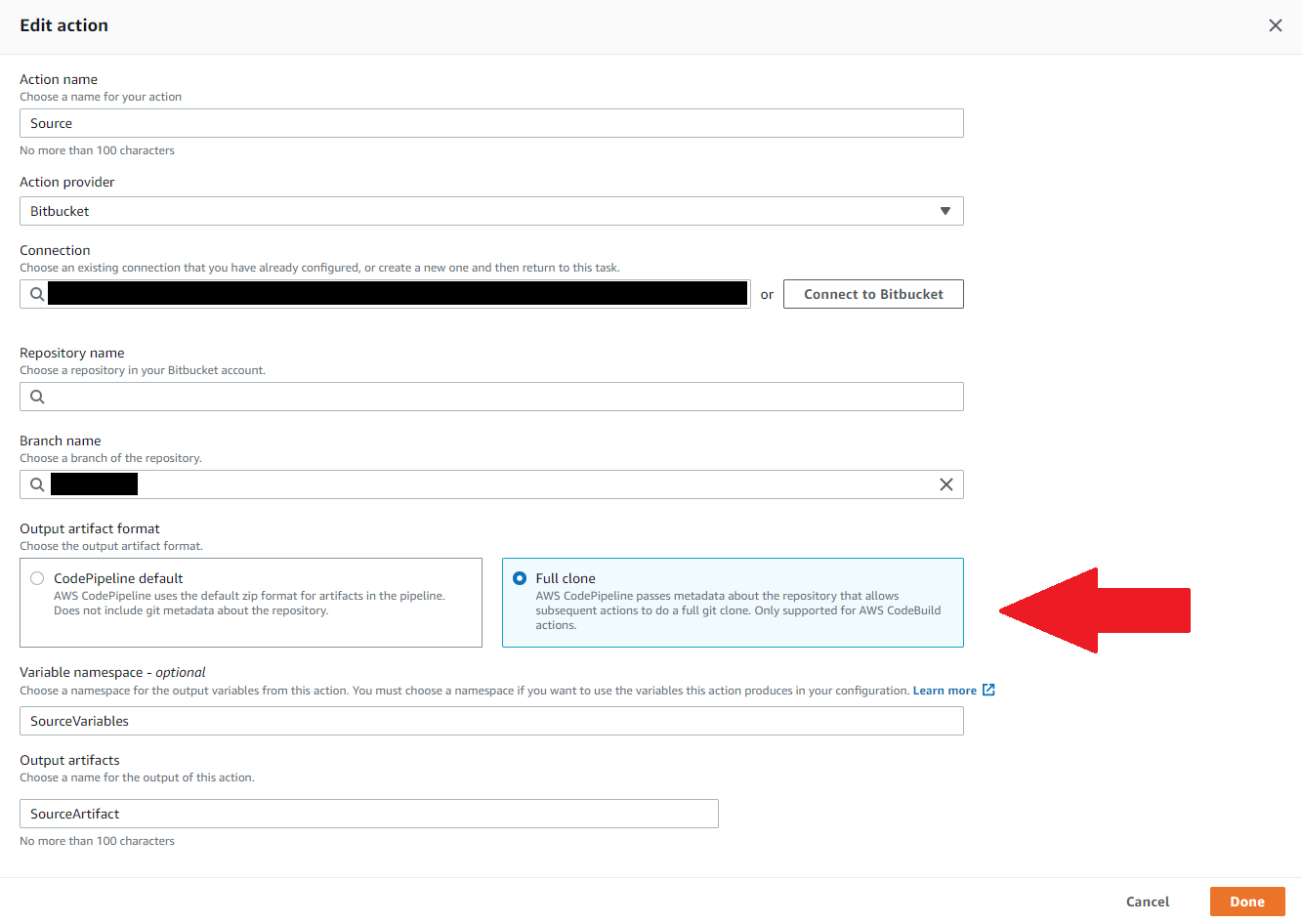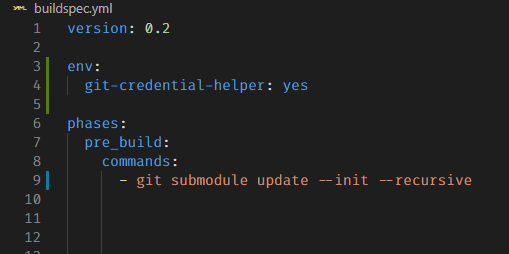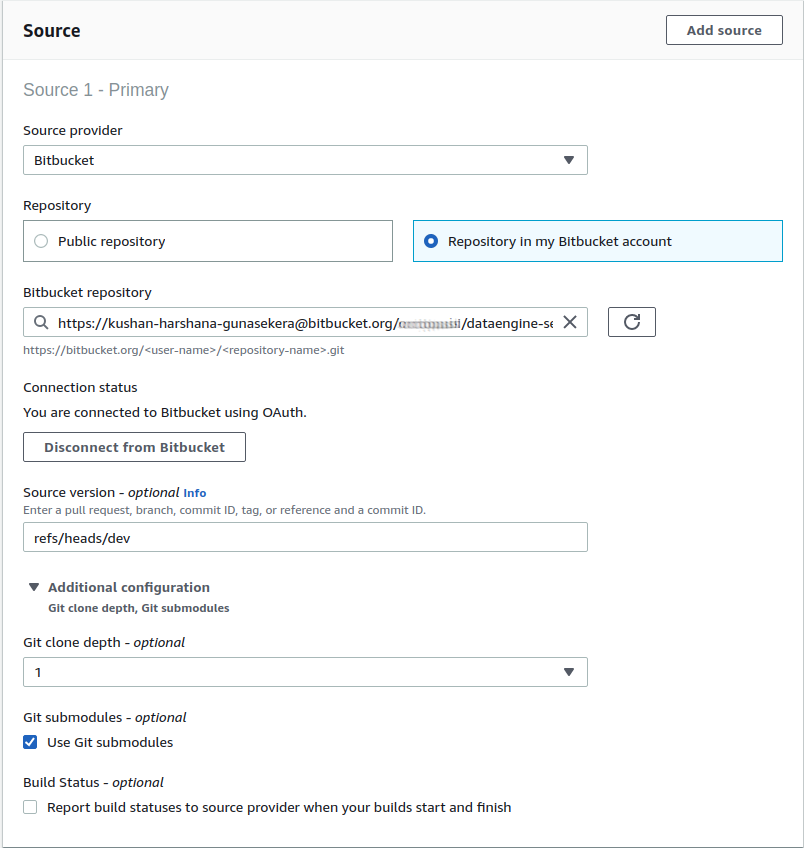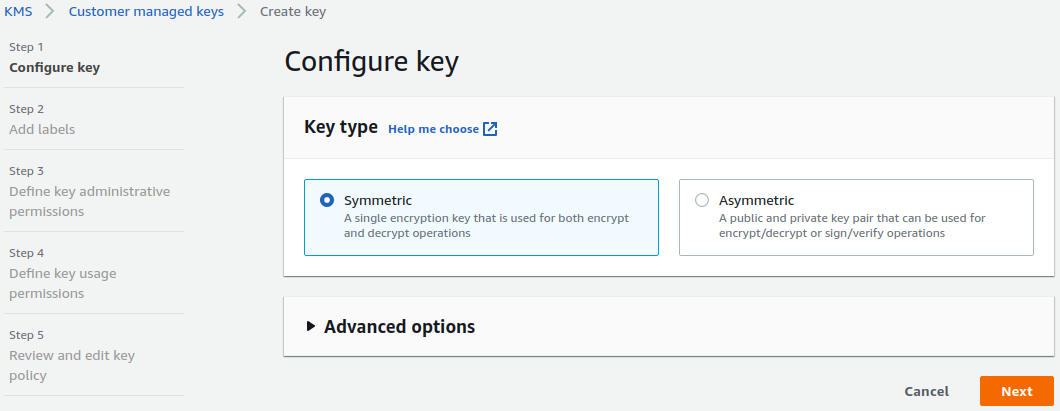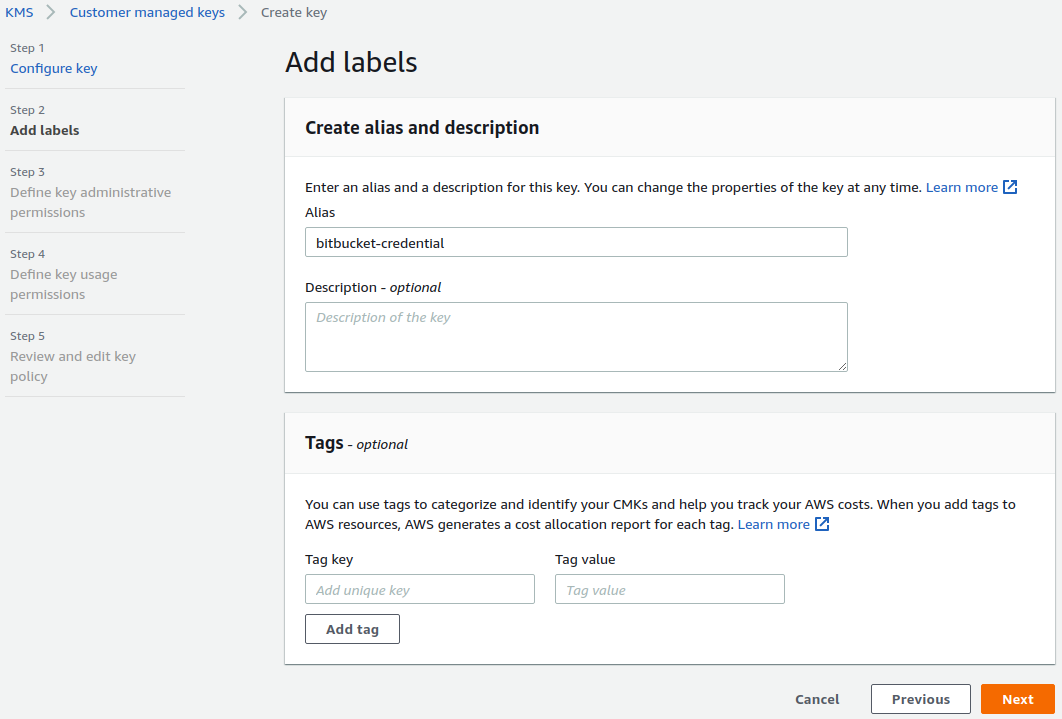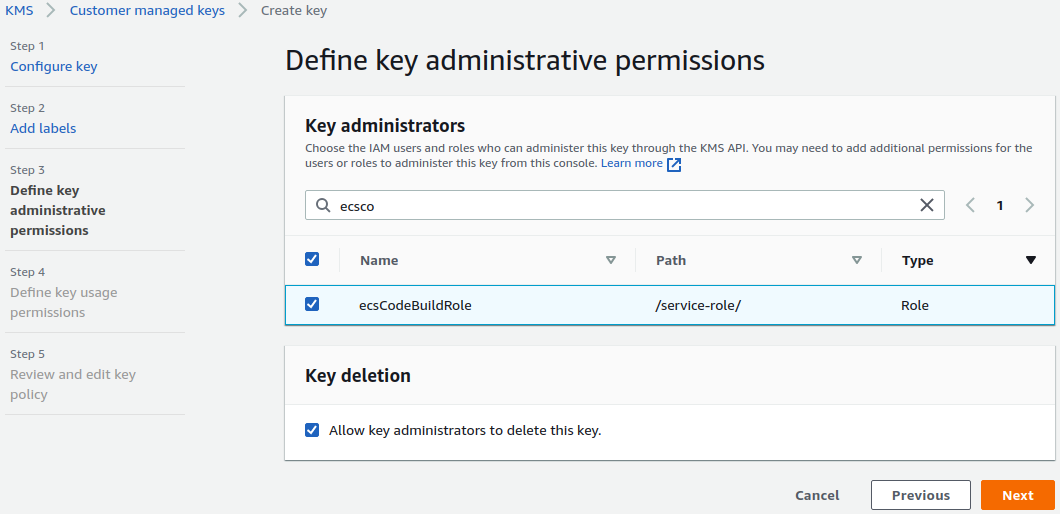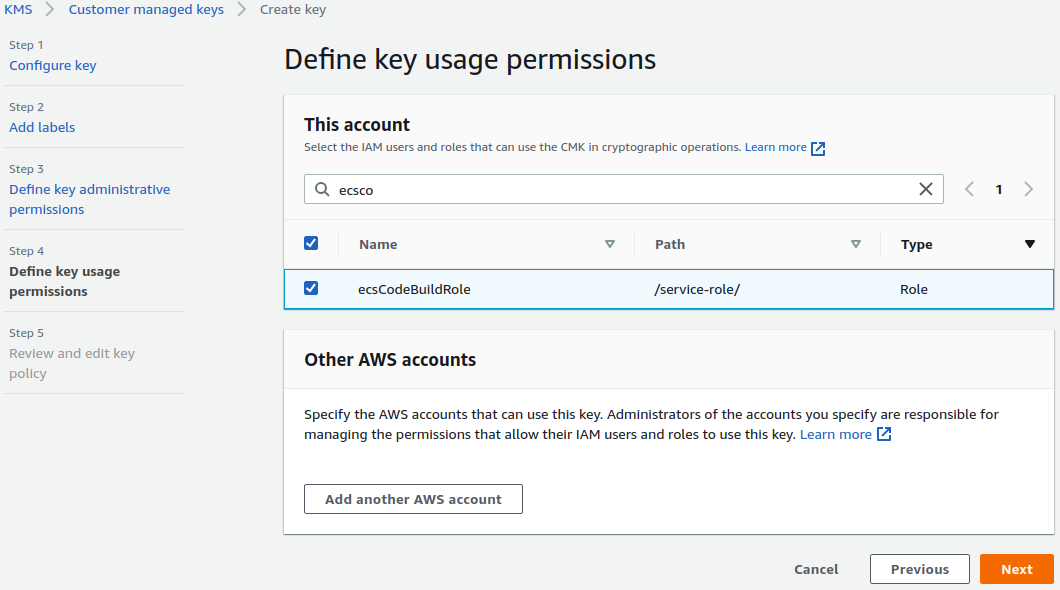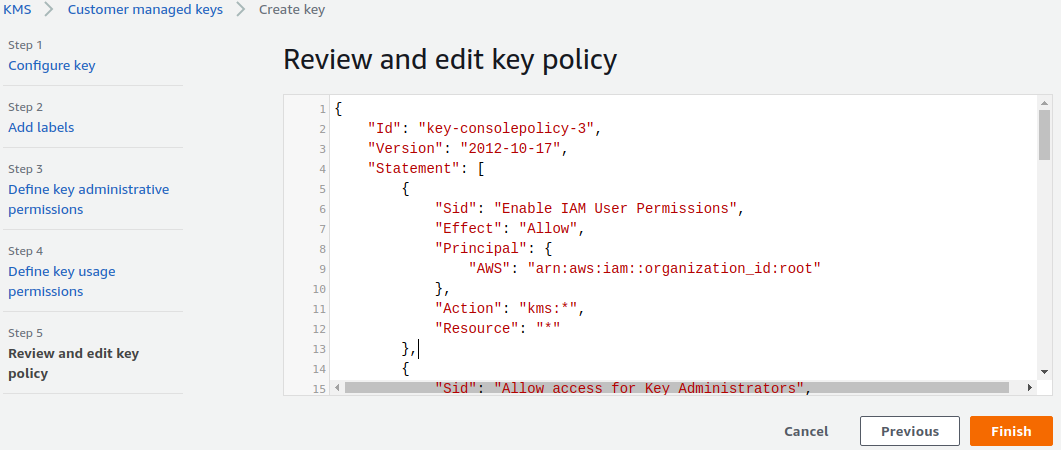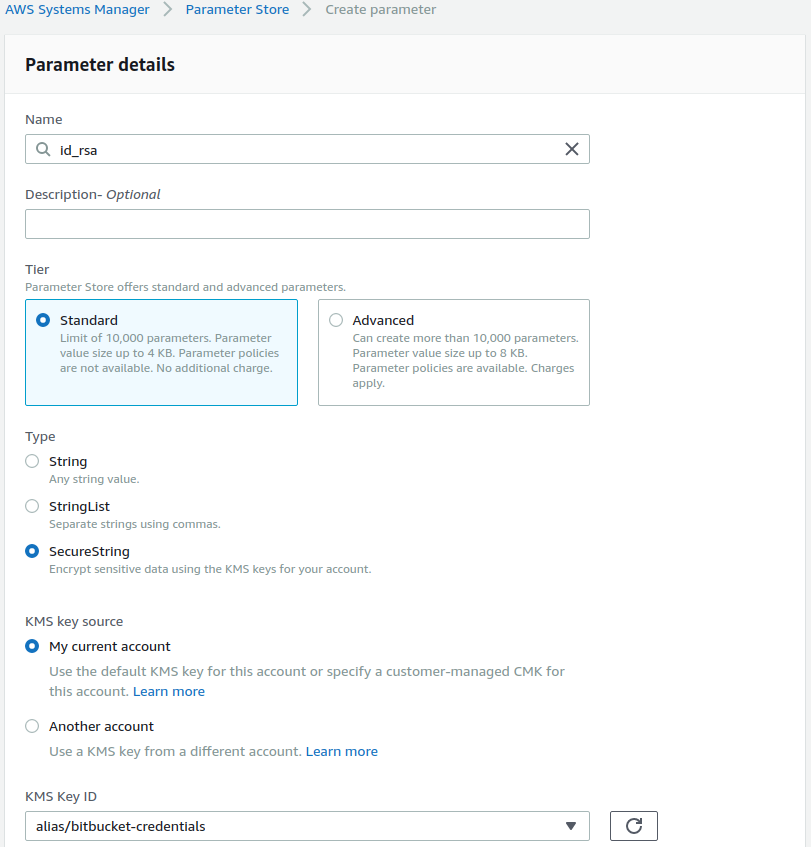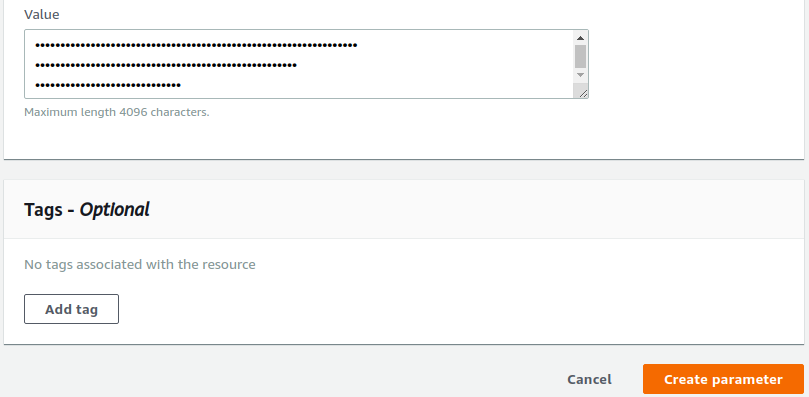While @MattBucci answer works, it has the caveat that you can only pull a specific branch, and not the specific commit that the submodule is using.
In order to handle that case, which is likely when using submodules, there are multiple things that needs to be done:
1) Create a git pre-commit hook with the following content:
#!/bin/bash
# This file is used in post-commit hook
# if .commit exists you know a commit has just taken place but a post-commit hasn't run yet
#
touch .commit
If you already have one, you can add that line at the beginning.
2) Create a git post-commit hook with the following contnet:
#!/bin/bash
DIR=$(git rev-parse --show-toplevel);
if [[ -e $DIR/.commit ]]; then
echo "Generating submodule integrity file"
rm .commit
SUBMODULE_TRACKING_FILE=$DIR/.submodule-hash
MODULE_DIR=module
# Get submodule hash, this will be used by AWS Code Build to pull the correct version.
# AWS Code Build does not support git submodules at the moment
# https://forums.aws.amazon.com/thread.jspa?messageID=764680#764680
git ls-tree $(git symbolic-ref --short HEAD) $MODULE_DIR/ | awk '{ print $3 }' > $SUBMODULE_TRACKING_FILE
git add $SUBMODULE_TRACKING_FILE
git commit --amend -C HEAD --no-verify
fi
exit 0
This hook will put the current commit hash into .submodule-hash file, this file needs to be committed to version control.
3) Go to your AWS Code build project
Developer Tools > CodeBuild > Build projects > YOUR_PROJECT > Edit Environment
Add an environment variable called: GIT_KEY, and the value will be the ssh key base 64 encoded. (Without line breaks, otherwise it won't work).
You can convert it online, or use any tool or programming language.
![enter image description here]()
4) On your buildspec.yml add a pre_build script.
version: 0.2
phases:
pre_build:
commands:
- bash build/aws-pre-build.sh
...
5) Create build/aws-pre-build.sh with the following content:
#!/bin/bash
set -e
# Get root path
DIR="$( cd "$( dirname "${BASH_SOURCE[0]}" )" && cd .. && pwd )"
MODULE_HASH=$(cat $DIR/.submodule-hash);
GIT_HOST=bitbucket.org
MODULE_DIR=module
REPO=user/repo.git
if [[ ! -d ~/.ssh ]]; then
mkdir ~/.ssh
fi
if [[ ! -f ~/.ssh/known_hosts ]]; then
touch ~/.ssh/known_hosts
fi
# Base64 decode private key, and save it to ~/.ssh/git
echo "- Adding git private key"
echo $GIT_KEY | base64 -d > ~/.ssh/git
# Add correct permissions to key
chmod 600 ~/.ssh/git
# Add $GIT_HOST to ssh config
echo "- Adding ssh config file"
cat > ~/.ssh/config <<_EOF_
Host $GIT_HOST
User git
IdentityFile ~/.ssh/git
IdentitiesOnly yes
_EOF_
# Check if host is present in known_hosts
echo "- Checking $GIT_HOST in known_hosts"
if ! ssh-keygen -F $GIT_HOST > /dev/null; then
echo "- Adding $GIT_HOST to known hosts"
ssh-keyscan -t rsa $GIT_HOST >> ~/.ssh/known_hosts
fi
# AWS Code build does not send submodules, remove the empty folder
rm -rf $MODULE_DIR
# Clone submodule in the right folder
git clone git@$GIT_HOST:$REPO $MODULE_DIR
# cd to submodule
cd $DIR/$MODULE_DIR
# Checkout the right commit
echo "- Checking out $MODULE_HASH"
git checkout $MODULE_HASH
Extras
If you have an extra step before going to AWS Code Build, something like bitbucket pipelines or similar, you can check that the actual git submodule hash, matches the hash from the generated file: .submodule-hash.
If it does not match, it means who ever pushed, didn't have the git hook.
#!/bin/bash
$MODULE_DIR=module
echo "- Checking submodules integrity"
SUBMODULE_TRACKING_FILE=.submodule-hash
# Check submodule hash, this will be used by AWS Code Build to pull the correct version.
# AWS Code Build does not support git submodules at the moment
# https://forums.aws.amazon.com/thread.jspa?messageID=764680#764680
# Git submodule actual hash
SUBMODULE_HASH=$(git ls-tree $(git symbolic-ref --short HEAD) $MODULE_DIR/ | awk '{ print $3 }')
if [[ ! -e $SUBMODULE_TRACKING_FILE ]]; then
echo "ERROR: $SUBMODULE_TRACKING_FILE file not found."
submoduleError
exit 1
fi
# Custom submodule hash - The is used by AWS Code Build
SUBMODULE_TRACKING_FILE_HASH=$(cat $SUBMODULE_TRACKING_FILE)
if [[ "$SUBMODULE_TRACKING_FILE_HASH" != "$SUBMODULE_HASH" ]]; then
echo "ERROR: $SUBMODULE_TRACKING_FILE file content does not match submodule hash: $SUBMODULE_HASH"
echo -e "\tYou should have pre-commit && post-commit hook enabled or update $SUBMODULE_TRACKING_FILE manually:"
echo -e "\tcmd: git ls-tree $(git symbolic-ref --short HEAD) $MODULE_DIR/ | awk '{ print \$3 }' > $SUBMODULE_TRACKING_FILE"
exit 1
fi
NOTE: You can also create that file on the pipeline before AWS Code Build, create a commit, tag it, and push it so the AWS Code Build pipeline begins.
git ls-tree $(git symbolic-ref --short HEAD) module/ | awk '{ print \$3 }' > .submodule-hash

